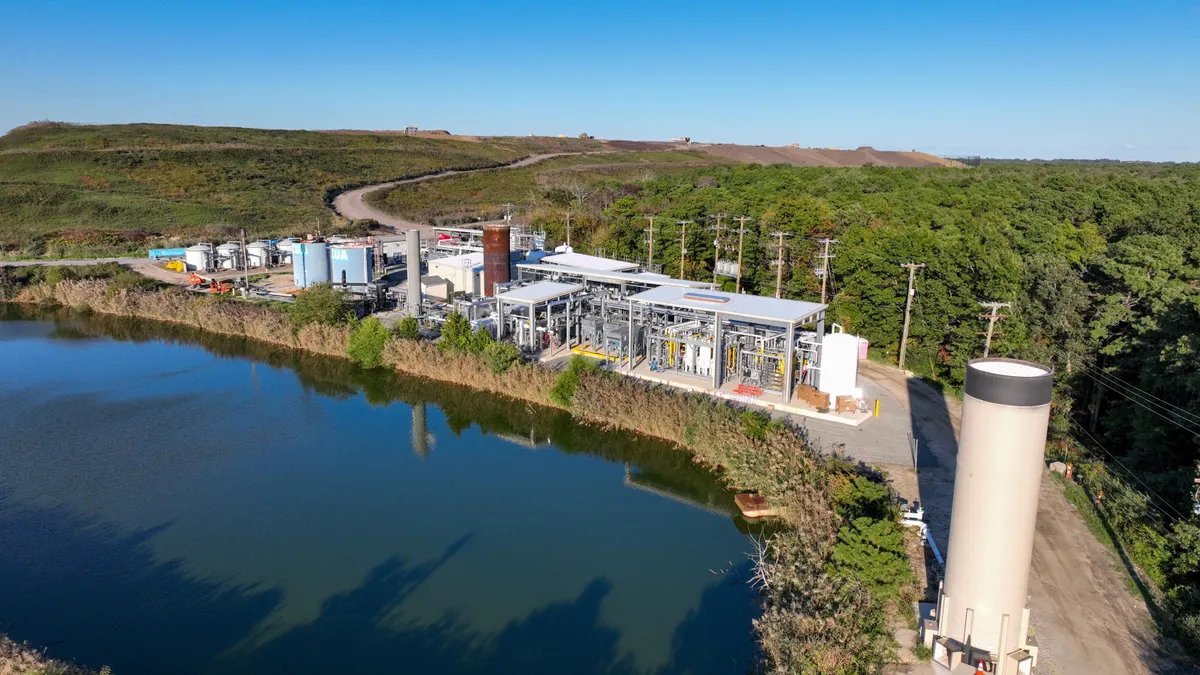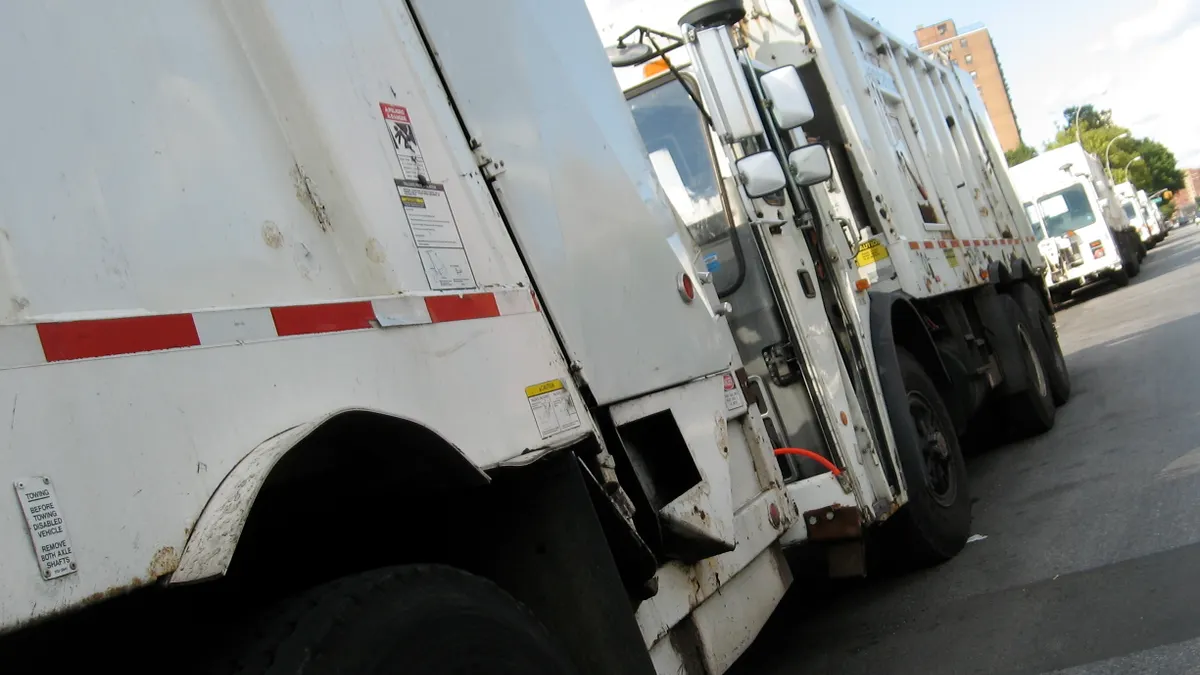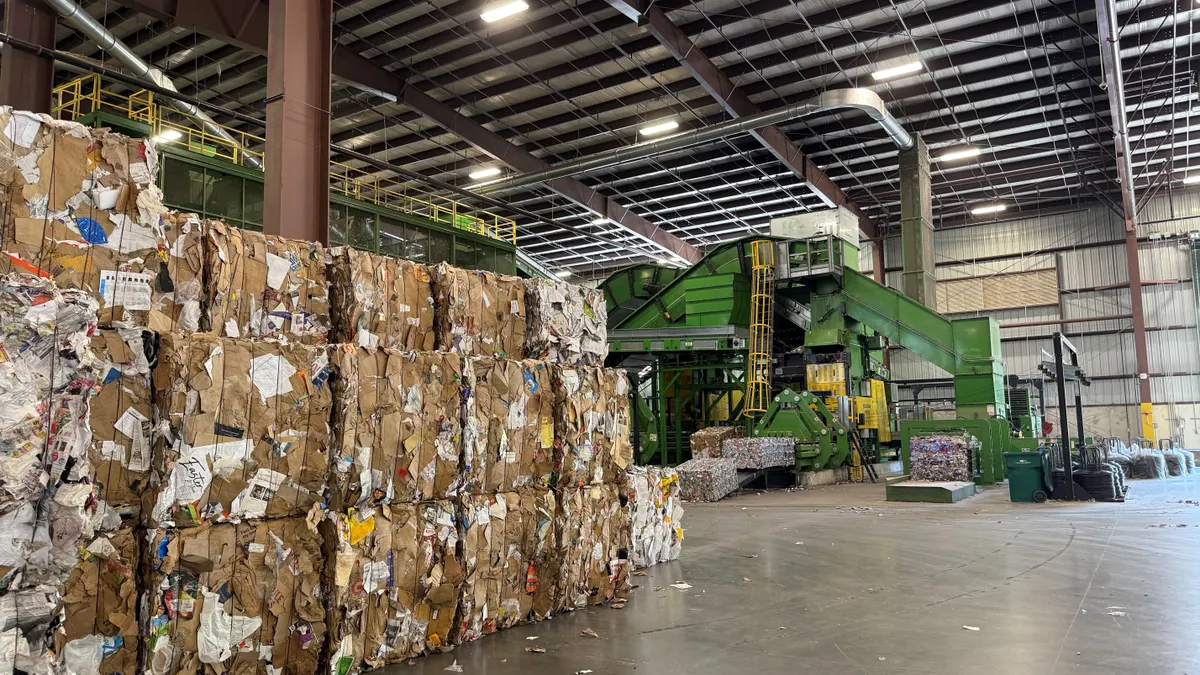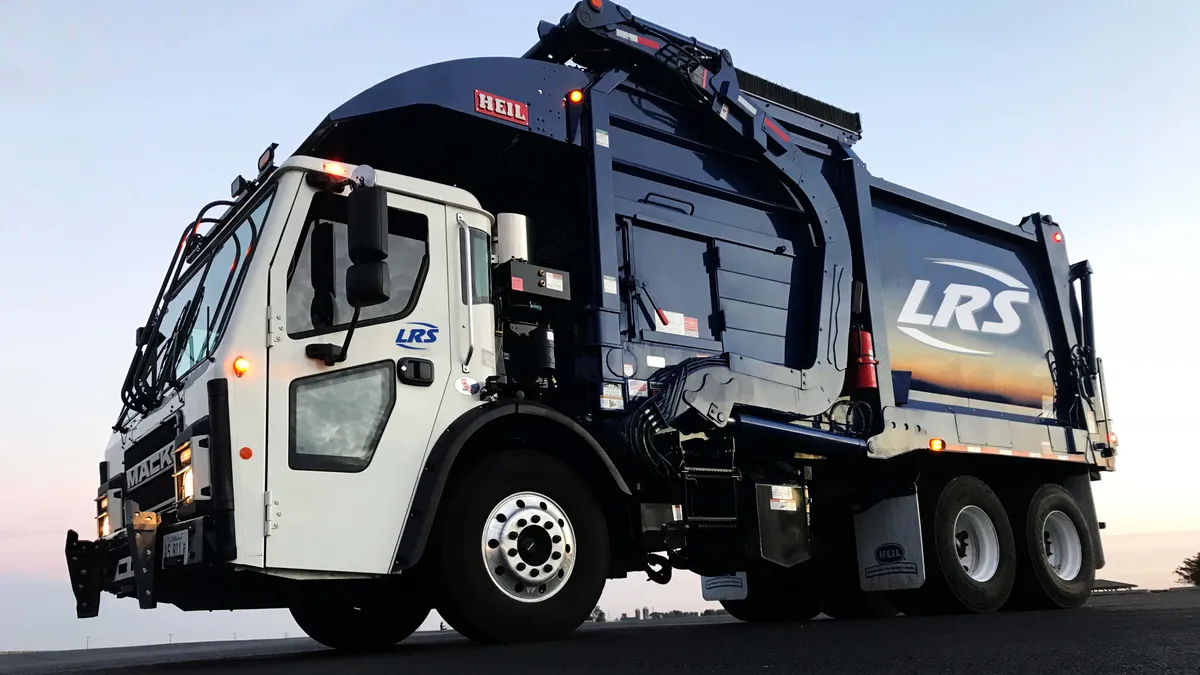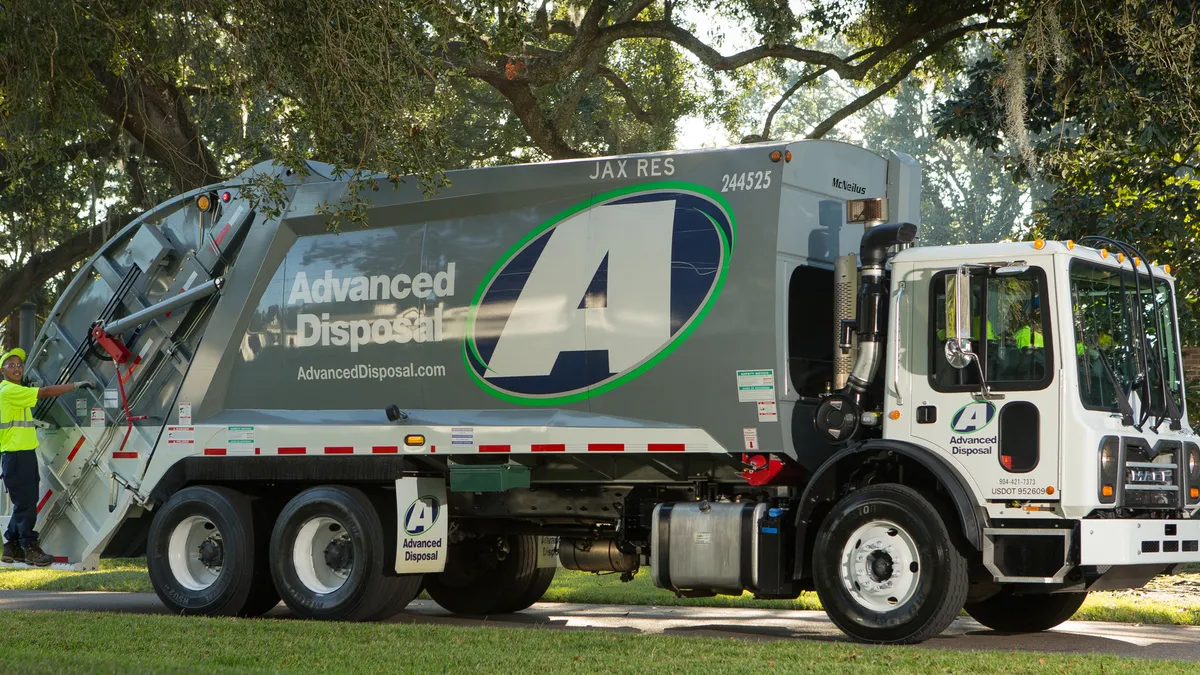This is the latest installment in Waste Dive’s Biogas Monthly series.
Shifting economics are putting a spotlight on projects converting landfill gas to renewable natural gas. Waste companies this month reported making decisions surrounding their RNG portfolios based on the price of D3 RINs, the credits created for cellulosic biofuels through the federal Renewable Fuel Standard.
Prices for the RINs were down roughly a dollar in October compared to D3 prices the prior year, according to data analyzed by Stillwater Associates. That follows a tumble that's lasted most of the year. As a result, investment bank Jefferies lowered its long-term expectation for the credit to $2.20 from $2.50 when estimating free cash flow from RNG.
Waste Connections CFO Mary Anne Whitney told analysts on an earnings call that “cost creep and delays” continue to hamper the company's RNG projects. The company has warned investors about delays in the past, but this month said it was pushing back some of its planned capital spending to next year in light of those challenges.
The company had previously projected a 1-1 ratio between dollars invested and earnings from RNG projects when RINs were in the $2.50 to $3 range. But that calculus has changed with prices now hovering in the $2.25 range, Whitney said.
“That certainly alters our expectations, and you could see the 1-to-1 moving closer to 2-to-1 depending on what those ultimate values are,” Whitney said on the Oct. 22 call.
Executives at WM also told investors they'd be pushing back the sale of some RINs to the fourth quarter, hoping to take advantage of an uptick in prices. And Republic Services executives told analysts the company could focus more on using landfill gas to generate electricity rather than RNG in the future to take advantage of massive energy demand from data centers.
Analysts say several factors are leading to the reduced credit prices. The EPA's proposal for the near future of the RFS, which it calls Set 2, takes a more pessimistic view on the future of the credits than the biofuels industry would like. The target volumes of credits that it proposed fossil fuel producers would need to buy are conservative, and the agency noted long term questions about how much new demand there would be for fuels like renewable natural gas in the transportation sector.
At the current range, RIN prices are still within most waste companies' RNG investment theses, and they can still generate a return on investment. But if prices hold at their current levels, those companies may seek another outlet for their RNG — or return to the landfill gas-to-electricity projects that previously dominated the space.
There are some ways RNG producers can mitigate the damage, such as long-term offtake agreements. Natural gas producers are also looking to expand to new markets like Europe by shipping their product to a region with high demand for the fuel.
Of course, these considerations are small potatoes for the large publicly traded waste companies — revenue from RNG represents 5% of a company's overall earnings at most over the next few years, according to Trevor Romeo, equity research analyst at William Blair. Companies like WM are unlikely to sell off their RNG portfolios unless D3 RIN prices drop below $2, a price not seen in almost five years, per EPA data. But Romeo said future investment in RNG may be limited if current expectations hold.
“Potential for growth beyond each company’s committed set of projects for the next few years (which were handpicked sites with the best economics) feels questionable at this point, especially if the EPA does not increase future RFS targets,” Romeo warned.
Below is a selection of updates from the biogas industry in October.
Generate Capital strikes food waste RNG deal
Infrastructure investment firm Generate Capital announced a $60 million (Canadian) financing deal with Fiera Infrastructure Private Debt this month. The deal will support subsidiary Generate Upcycle's growing anaerobic digestion business.
Upcycle's current portfolio includes five food waste processing facilities in Ontario and New York. The company is in the process of upgrading several sites to produce RNG. At full buildout, those sites are expected to produce about 1 million gigajoules of RNG annually. The company celebrated the reopening of one of its upgraded digesters in Auburn, New York, last month.
“This financing underscores both the maturity and the momentum of Upcycle’s RNG platform,” Bill Caesar, president of Generate Upcycle, said in a statement. “Food-waste RNG is scaling, and this transaction shows how creative capital can unlock solutions with real-world environmental and economic impact.”
New Jersey RNG facility completed at public landfill
Project partners Opal Fuels, South Jersey Industries and the Atlantic County Utilities Authority on Oct. 6 announced the commercial operation of a landfill gas-to-RNG facility at the authority's landfill.
The project is the first to deliver RNG into SJI subsidiary South Jersey Gas's pipeline. Located in Egg Harbor Township, the facility can process up to 2,500 standard cubic feet per minute and produce 650,000 mmBtus of RNG annually.
“ACUA is proud to continue its long history of innovation by becoming the first public solid waste facility in New Jersey to host an RNG project,” ACUA President Matthew DeNafo said in a statement.
Opal Fuels and SJI will continue to collaborate through a two-year-old joint venture. Their next project is the Burlington RNG facility, located in Florence Township, New Jersey.
Waga Energy opens Iowa RNG facility
Waga Energy commissioned an RNG facility at the Scott Area Landfill in Davenport, Iowa, in October. The facility can generate more than 205,000 mmBtus of RNG annually.
Waga Energy owns and operates the plant for a 20-year term and will share revenue with the Waste Commission of Scott County for operational expenses and Linwood Mining and Minerals, which leases the property to the public commission. The landfill accepts about 185,000 tons of waste annually.
Waga has 18 projects under construction worldwide. EQT Infrastructure completed a deal to acquire the company and take it private in September.
Clean Energy Fuels reports RNG progress
Clean Energy Fuels unveiled another tranche of RNG-related agreements on Oct. 30. The company provides a range of services, including operations and maintenance, as well as construction of fueling infrastructure. Three waste companies were part of the latest announcement.
Republic Services contracted with Clean Energy Fuels to build two new stations in Fort Collins and Parker, Colorado, that will fuel a combined 135 RNG trucks. The companies are also collaborating to upgrade a Republic fueling station in North Las Vegas, Nevada, that will add 41 new fueling stalls. Republic plans to add 15 new trucks to that fleet in the next year.
USA Hauling & Recycling also expanded its existing partnership with Clean Energy Fuels. In addition to securing 2.5 million gallons of RNG, the hauler is also contracting with Clean Energy Fuels to build a new filling station in South Windsor, Connecticut.
Finally, Ecotech Waste Logistics, a hauler in Jeffersonville, Indiana, contracted to receive 300,000 gallons of RNG annually to fuel 30 vehicles.



